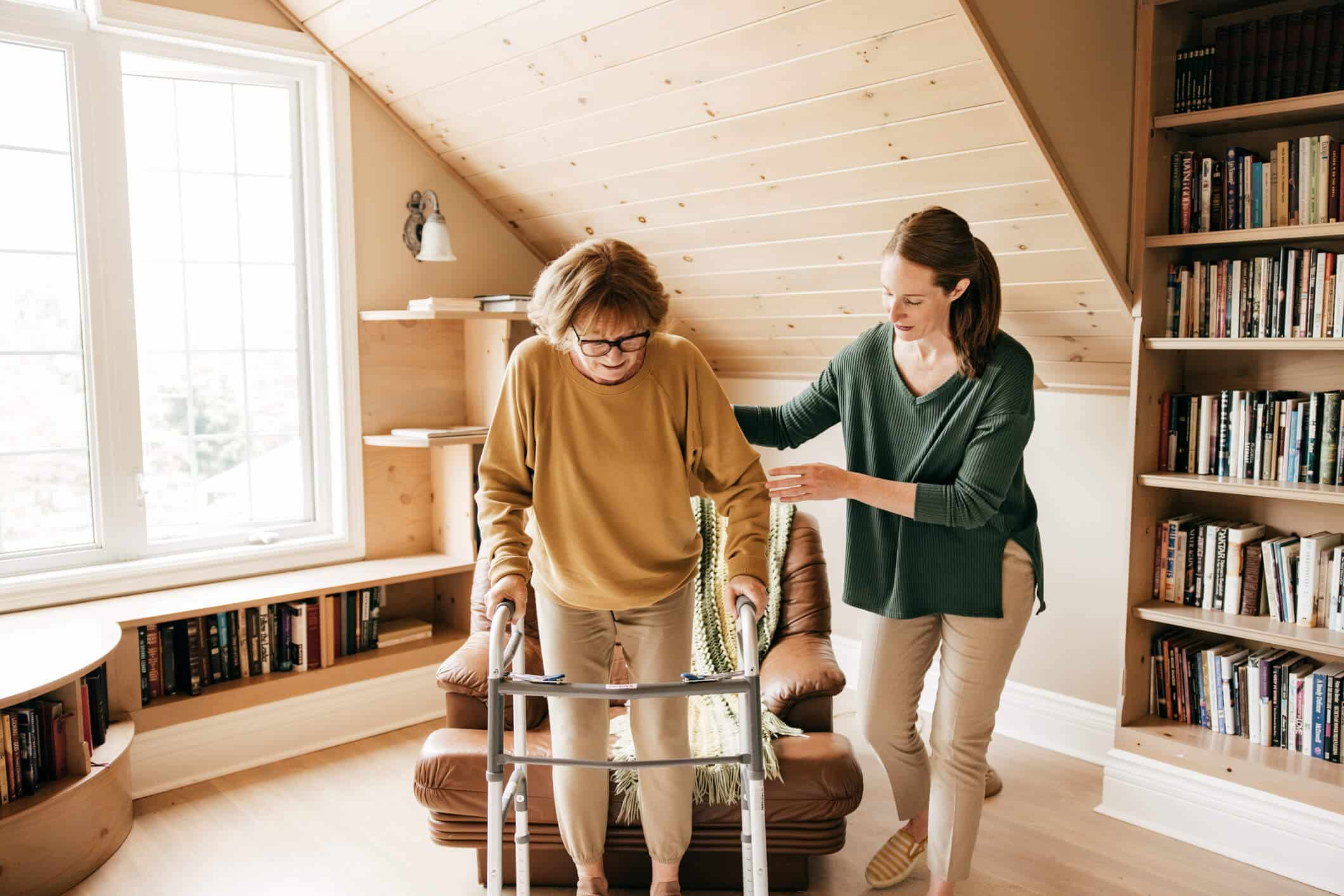
As they age, older adults may need help with routine daily activities, such as bathing, preparing meals or managing medications. If your aging loved ones are in this situation, how can you care for them?
How to Help Your Aging Loved Ones
- Talk about your concerns. If you’re worried that your loved one needs elderly care, have an open and honest conversation with them. Ask how they’re feeling and learn more about their needs.
- Accompany them to doctor’s appointments.With your loved one’s permission, attend their doctor’s appointments. This gives you the opportunity to ask questions and get updates about their health status.
- Be realistic about how much support You can offer. Taking on too many caregiving responsibilities can lead to stress or burnout. To preserve your health, share the caregiving responsibilities with others.
- Research elderly care options. Learn about the many types of elderly care, such as in home care, assisted living facilities and nursing homes.
Top 8 Signs Your Parent May Need Home Health Care
Home health care gives you the option of having your loved one cared for in a familiar setting while receiving the medical care that is needed.
1. They have multiple chronic health conditions
Sixty percent of older adults have at least two chronic health conditions [1], such as diabetes, arthritis, or high blood pressure. Managing these conditions may mean tracking many doctors’ appointments or remembering to perform specific tasks every day, such as checking blood sugar levels. Your parent may appreciate help managing their health conditions.
2. They have trouble with their medications
For seniors with multiple health conditions, remembering to take each medication on time can be challenging. Plus, it’s not easy to keep track of doctors’ instructions, such as which drugs need to be taken on an empty stomach and which need to be taken with meals. If you notice unorganized pill bottles or dropped pills, your parent may need help with medication management.
3. They have frequent hospitalizations
After a hospitalization, about one-third of seniors have trouble performing their usual daily activities. Seniors may lose muscle mass and strength while they’re recovering in the hospital, which can make tasks like cooking, cleaning and personal care difficult. They may need home health services, such as physical therapy or home health aide, to regain their independence.
4. They’ve changed their grooming habits
A change in personal care or hygiene habits may be a sign your parent needs some extra help. For example, older adults may avoid showering if they’re afraid of slipping and falling, or they may avoid brushing their hair or teeth if they’re having trouble holding the necessary tools.
5. They’ve suddenly lost weight
Sudden weight loss may be a warning sign that your parent needs some help around the house. Some older adults may have mobility issues that interfere with regular grocery shopping. Others may have health conditions, such as arthritis or Parkinson’s disease, that make preparing meals difficult or painful.
6. They’re having mobility problems
When older adults have difficulty walking or climbing stairs, they may avoid leaving home for medical appointments, shopping trips or social activities. Mobility changes can also interfere with day-to-day personal care tasks, like bathing.
7. They’re experiencing memory loss
Slight forgetfulness is common among older adults, but more significant memory loss may be a warning sign that they need assistance from a live in home health. Watch for memory loss that interferes with your parent’s daily activities. For example, struggling to follow instructions or getting lost in a neighborhood they know well.
8. They’ve withdrawn from activities
Changes in health can cause older adults to isolate themselves at home and withdraw from activities they used to enjoy. For example, your loved one may stop traveling, avoid family gatherings or give up favorite pastimes, like golf or gardening.
How Home Health Care Helps Seniors
Home health care provides the support seniors need to live independently in their homes for as long as possible. These services can help seniors recover or maintain their ability levels while in familiar surroundings.
Home health care includes a broad range of services. A few examples include:
- A visiting nurse that can communicate with the PCP and also provide skilled nursing care, such as injections, wound care, or education about a senior’s medical conditions.
- Help with medication reminders and management.
- Dedicated Care Manager
- Home health aide services, such as help with basic medical care.
- Personal care aides, help with day-to-day care tasks, attend doctor appointments and assist with household duties.
- Physical therapy to help seniors gain or maintain strength.
- Occupational therapy to help seniors overcome their physical limitations.
- Speech therapy to maintain or improve speaking and swallowing skills.
- Social work services to coordinate care and help navigate financial resources that may be available to your loved ones.
ArchCare Elderly Care and Home Health Care Can Help
When you need help caring for your aging parents, you can rely on ArchCare. ArchCare, the Continuing Care Community of the Archdiocese of New York, offers the extra help seniors need to enjoy their golden years. Seniors can receive elder care in the comfort of their own homes, or in other settings, like one of ArchCare’s six nursing homes.
Call and speak with a Care Navigator at (855)‑951‑CARE [2273] (TTY: 711). We’re here to help from 8:00 a.m. to 8:00 p.m., Monday through Friday.
References / Sources
- “Talking With Your Older Patients” at NIA.NIH.gov